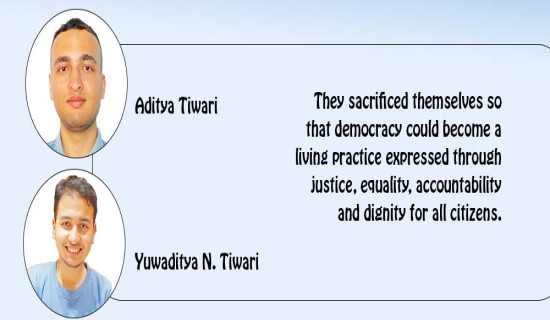- Friday, 30 January 2026
Vocational Education Empowers Girls
Ronald Ssegujja Ssekandi
When it comes to education, girls and women are discriminated against in many parts of the world. Uganda is no different, although the government has made efforts to enable good education for all. Additionally, civil-society organisations and social enterprises are striving to make a change. The Smart Girls Foundation, a social enterprise located in Uganda’s capital Kampala, runs a programme which provides vocational education to girls in order to allow them to find meaningful employment.
“Our ‘Girls With Tools’ programme is unique because it trains females in careers that are considered to be for males,” says Jamila Mayanja, the founder and director of the Smart Girls Foundation. Key areas include machinery welding, automotive mechanics, electric installation, carpentry, construction and home painting. The programme also has courses in traditional arts and craft skills like tailoring and basket weaving. “On top of the technical-skills training courses, our girls also get additional workshop trainings that include entrepreneurship, life skills, gender issues and financial literacy,” Mayanja says.
The programme runs cohorts of 100 to 200 young women. The curriculum runs for six months to one year, after which the girls are helped to find an internship. That is often their first employment experience. Tuition fees for the programme are paid by families that can afford them, while scholarships are provided for girls that can’t afford the costs. In 2019, Girls With Tools received funding from a local telecommunications company, MTN Uganda, to support enrolment of more girls into the programme. The MTN Foundation facilitated the setup of a new training facility to train 400 girls annually.
The facility has a service bay, a washing bay and a classroom block as well as a computer lab. The foundation hopes that this investment will lead to 40 new women-led businesses per year. Thirty-two-year-old Nakijjoba Sharifah is an engineering and mechanical works student at the programme. “I have for long admired engineering work, and thanks to Girls With Tools, I can pursue that dream,” she says. Khayinza Shalom, 21, is taking a course in electrical installation. She remembers that when she decided to do the course, she got a lot of negative feedback from her family and friends who criticised that she was pursuing a “masculine career”.
One year down the road, Khayinza Shalom has already made some money working on domestic electrical installations and repairs. She has even co-founded a local company called “Solar Girls Africa” which invents new solar-powered appliances. She hopes that she will be able to contribute to the wide usage of clean energy in Uganda and thus help reduce the country’s carbon emissions.
Smart Girls Foundation also addresses issues that keep girls away from school. Menstruation is one example. The tailoring class is manufacturing reusable sanitary towels made from locally available materials, which are distributed to the girls attending the programme. These cost less than the single use synthetic sanitary towels available on the market.
The programme is also producing a storage backpack in which the young women can keep their reusable sanitary towels. “It is helpful in instances when the girls cannot access wash facilities. They can safely store away these sanitary items,” Jamila Mayanja says. Most of the girls who use the backpack are from poor backgrounds, so their access to electricity is limited too. The bag therefore also comes with a rechargeable solar light. The girls can charge it during daytime and use it to light their way home or to study in the evening hours.
-- Development And Cooperation

















